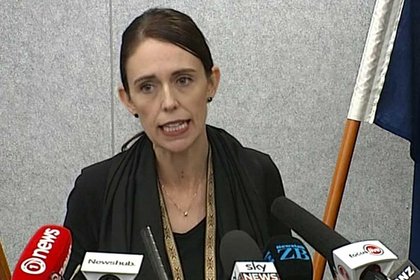
Prime Minister Jacinda Ardern announces inquiry into Christchurch mosque terror attacks will be a Royal Commission
by Dr John Battersby
The Prime Minister’s announcement of a Royal Commission into the Christchurch terror attack was inevitable. The country needs to know why this attack was able to be planned, and carried out to such dreadful effect.
There are questions about how the accused gunman’s manifesto could be compiled – its length attesting to the time taken to distil and articulate it all in writing. How did the gunman effectively radicalise himself? Why did nobody notice anything sufficiently amiss with this individual to raise concerns? These are all valid questions that an inquiry needs to consider.
However, it needs to be an inquiry, not an inquisition. To be genuinely useful, the inquiry must create an environment in which those with the knowledge of current processes, decisions and resources are free to discuss it all. If there are gaps, they need to be found and addressed – not hidden by individuals trying to avoid liability.
The inquiry needs to be broader than it is. Before 15 March, most New Zealanders assumed there would never be a terrorist threat here. Warnings or fears expressed were commonly dismissed as paranoia. New Zealanders did not care about preparing for terrorism, and politicians did not either.
Law enforcement and intelligence agencies maintain terror watch-lists. These work well and in multiple countries have identified problem individuals, and intercepted them well ahead of them ever doing anything violent. The success of these preventative efforts is difficult to define, because in preventing a violent outcome, the evidence there was ever going to be any such outcome is eliminated.
Watch-lists are a collation of individual names of people who may pose a risk because they have said, or done something to raise suspicion. If evidence is found it will usually lead to increased surveillance and in many countries attempted terrorist attacks have been thwarted this way. New Zealand has also prosecuted a small number of people for engaging with extremist material. Who will ever know if these prosecutions actually ever stopped anything?
But watch-lists do not always work. In August 2018, a Sydney student was arrested in possession of what appeared to be plans to undertake a terrorist attack. Subsequent investigation revealed he had been framed. Omar Mateen, who committed the Orlando shootings in June 2016, had twice been on the FBI’s watch-list, and twice removed from it. He exhibited no sign of sinister or hostile intent – and the FBI dismissed him as a threat possibility. His attack, when it came, killed 49 people. If the Christchurch offender had been on a watch-list, it does not necessarily mean anything would have been any different.
The problem with watch-lists is that they are composed of every person identified as potentially posing some threat – even though the vast majority of those listed never commit any violent offence. Working through such a list is not like finding a needle in a hay-stack, it’s like finding a needle in a needle-stack. The Christchurch offender looked like you or me, lived or travelled in several countries, and did not raise any suspicion in any of them.
Isolated, aloof, and ruthless, lone actors are very difficult to find – especially if it is only in their twisted minds that their true intent is known. That is probably why law enforcement and intelligence agencies in Australia and New Zealand missed him.
The inquiry should address the Arms Act – the subject of criticism and a Parliamentary Inquiry in 2017. Our Parliamentarians did not recognise the possession of military style semi-automatic weapons as a risk that needed mitigation. Had they done so, the Christchurch attack may still have occurred but the toll could have been much less.
New Zealand’s terrorism legislation has languished – its cumbersome definition of terrorism, as well as its incoherence and impracticality, have rendered it useless. Any changes in the resourcing or powers of intelligence agencies have been reluctantly made, and only then amid protest from various groups opposing intrusion into our civil rights. All of this fed into the decisions about the resourcing of the intelligence and law enforcement coal-face.
It will be of no value to attribute blame for gaps or poor decisions without understanding the social and political context, legislative and fiscal constraints that such decisions were taken in. The inquiry must recognise that the Christchurch attack was as much about our general complacency as it was about decisions taken by agencies on the watch for those who intend do us harm.
Dr John Battersby is a Teaching Fellow in the Centre for Defence and Security Studies at Massey University and a specialist on terrorism and counter-terrorism.